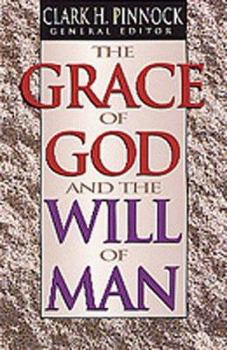The Grace of God and the Will of Man
Select Format
Select Condition 
Book Overview
An important theological perspective from an impressive team of evangelical scholars from many traditions.
Format:Paperback
Language:English
ISBN:1556616910
ISBN13:9781556616914
Release Date:November 1995
Publisher:Bethany House Publishers
Length:320 Pages
Weight:0.87 lbs.
Dimensions:0.9" x 5.4" x 8.4"
Customer Reviews
2 ratings
These scholars use the Bible, not systematic theology
Published by Thriftbooks.com User , 16 years ago
This book is easy to read. Some chapters are a bit deep, but you can get similar ideas from the authors of the other chapters (most of whom wrote concisely and simply). What a great collection of non-Calvinist scholars! Cottrell really helped me understand the biblical nature of sovereignty. He deals directly with the idea that faith is NOT a work. Calvinists claim that Arminians work for that salvation because believing/faith is a work. This is just not biblical. John Sanders makes the God of the Bible a personal God. He thinks, creates, plans, anticipates, remembers, responds, punishes, warns, forgives. All of these biblical examples (not from a systematic theology) confront the "immutable", impersonal God of Calvin, who only acts and never reacts. Do they read the Old Testament? Read the Bible. Simply and without systematic presuppositions. You will not find Calvin's limited atonement. You will find a God of mercy who make his gift available to all who will act in faith and receive it.
A quick read of contemporary Arminian Christians
Published by Thriftbooks.com User , 19 years ago
Although somewhat technical, Pinnock's book is a good read. He edits 15 chapters (in 302 paperback pages) from today's Christian thinkers on subjects ranging from Universal Grace, to Existential Freedom, to Predestination and Assurance. The various chapters bring clearer understanding to Wesley, Calvin, Luther and Arminius. Written for the seasoned Christian this book will also be interesting to the faith novice. The book is very well sourced. Each chapter concludes with extensive endnotes. Pinnock also provides three indexes for: persons, subjects and Scripture references. These make the book very useable and a quick reference. The ideas of "God's conditioned foreknowledge" (page 107), God's "middle knowledge" (page 147), and the "compatibilist doctrine of freedom" (page 282) will be sure to raise the eyebrows, if not the genuine ire, of postmodernists. The first 180 pages proffer a good and substantive reading in contemporary Protestant theology. The remaining pages offer a additional thinking on themes such as salvation, sin, freedom, grace, and election. In a nutshell, read Pinnock to learn what some of today's Protestants are saying about age-old doctrines and theologies. These 15 writers make the case that Christian Arminianism has a voice in the present. All students of theology should read this book. It is also very recommendable to the casual theological reader.





